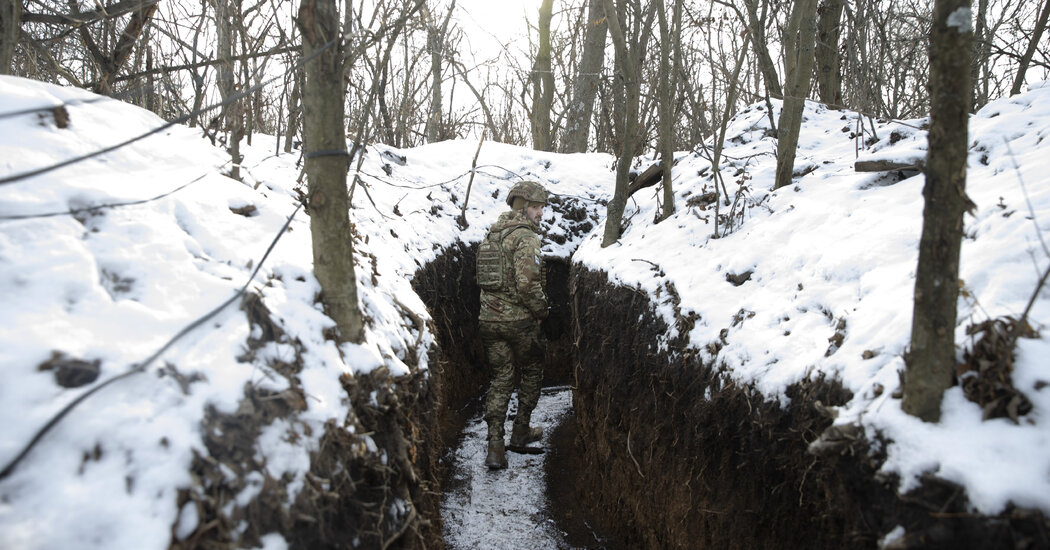
Her party leader and chancellor, Olaf Scholz, has been more circumspect, saying after a meeting with the NATO secretary-general, Jens Stoltenberg, on Tuesday that Germany was ready to discuss halting the pipeline should Russia attack Ukraine. “It is clear that there will be a high price to pay and that everything will have to be discussed should there be a military intervention in Ukraine,” Mr. Scholz said.
The issue is sensitive for Washington, too. Last week, at NATO, Wendy R. Sherman, the deputy secretary of state, said: “From our perspective, it’s very hard to see gas flowing through the pipeline or for it to become operational if Russia renews its aggression on Ukraine.”
But the divisions are precisely why her boss, the secretary of state, Antony J. Blinken, is in Berlin on Thursday to talk to the German government and to senior diplomats from Britain and the so-called Normandy Format on Ukraine — France and Germany.
Set up in 2014 after the commemoration of D-Day in Normandy, the group includes Russia, Ukraine, France and Germany, but not the United States, because at the time President Barack Obama wanted to leave Ukraine to the Europeans.
Some consider that to have been a mistake, and there are discussions now about whether the United States should also join to try to de-escalate the current crisis. Negotiations produced the Minsk accords, which both Russia and Ukraine accuse the other of violating, and which Russia continues to say hold the key to the Ukrainian crisis.
Further divisions were on display on Wednesday in Strasbourg, France, where Emmanuel Macron, the French president, gave a long speech to the European Parliament setting out his priorities for the French presidency of the European Union — and implicitly for his own re-election campaign with voting in April.




